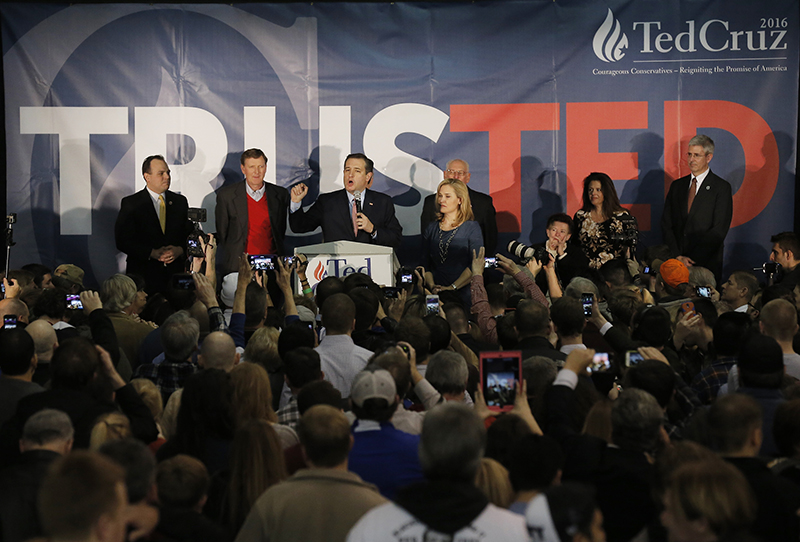Mark Silk is Professor of Religion in Public Life at Trinity College and director of the college’s Leonard E. Greenberg Center for the Study of Religion in Public Life. He is a contributing editor of the Religion News Service. Religion News Service photo by Ted Richardson
(RNS) Yes, the Iowa caucuses were a YUGE win for me. By stomping on Donald Trump, Ted Cruz proved me right, and by finishing in a dead heat with Hillary Clinton, Bernie Sanders proved me half right. As I say, a YUGE win against the odds.
OK, so maybe the caucuses were not all about me. Maybe they were about my analysis.
I said the key to Cruz’s victory would be white evangelicals, and that was totally the case, thanks to an even YUGER than usual turnout of those folks. In 2008, they constituted 60 percent of GOP caucus participants. In 2012, they were 57 percent. This time, it was 65 percent.
RELATED STORY: Iowa predictions: Cruz and Sanders

U.S. Republican presidential candidate Ted Cruz speaks, with his wife Heidi Cruz by his side, after winning at his Iowa caucus night rally in Des Moines, Iowa, on February 1, 2016. Photo courtesy of REUTERS/Jim Young
*Editors: This photo may only be republished with RNS-SILK-COLUMN, originally transmitted on Feb. 2, 2016.
Cruz won 34 percent of them, as compared with 22 percent for Trump, 21 percent for Marco Rubio and 12 percent for Ben Carson. That 12-point Cruz plurality amounts to twice his margin of victory. In a word, Iowa’s conservative Christian machine got the job done for him.
But it doesn’t make him the evangelical knight of 2016. In 2008, Mike Huckabee had the backing of 46 percent, with no one else in the field over 20 percent. Against Rubio and Trump, Cruz has yet to close the sale with that crucial component of the GOP base.
On the Democratic side, it’s harder to demonstrate my claim that Sanders would do better because of the rise of the Iowa “nones,” the religiously unaffiliated. That’s because the Democratic entrance poll didn’t ask a question about religion (or lack of it).
But there’s good indirect evidence. Sanders piled up his biggest margins among the least religious demographic cohorts: young voters (70 points), single men (36 points), 30- to 44-year-olds (21 percent) and the very liberal (19 points).
At 24 percent, Iowa has just a slightly larger than average proportion of nones than the rest of the country (22.7 percent). If he can keep up the excitement, Sanders will do well in high no-religion states. In the Super Tuesday Bible Belt, not so much.
(Mark Silk is professor of religion in public life at Trinity College and director of the college’s Leonard E. Greenberg Center for the Study of Religion in Public Life. He is a contributing editor at RNS)




